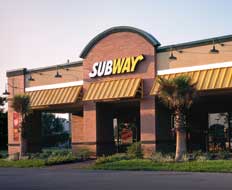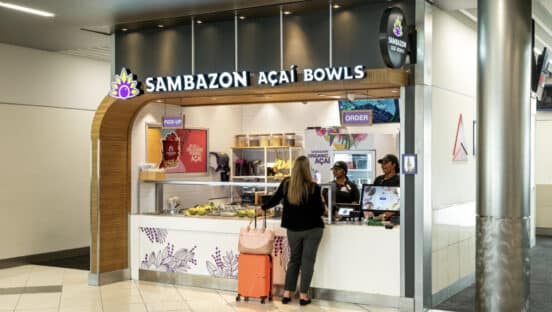They say absence makes the heart grow fonder, and that’s never truer than when you keep entrepreneurs from their calling: to be in business for themselves, to chase a dream, and to follow their entrepreneur’s heart. An entrepreneur’s heart is full of passion and drive to get out there and make it happen, even when everyone else is telling you it can’t be done.
We entrepreneurs are literally prepared to give up the family farm for our dreams. Instead of giving up the farm, I gave up a prestigious job on Capitol Hill to open a sandwich shop.
Back in the late 1970s, I was a frustrated entrepreneur serving as legislative counsel to a Congressman. My job was great, serving as then minority counsel and general counsel to a couple of U.S. House committees in Washington, D.C. But I wasn’t fulfilled. That’s where Subway and a college acquaintance, Fred DeLuca, stepped in.
DeLuca had been an entrepreneur since he was a teenager. At 17, he wanted to go to college but didn’t have enough money. So he went to a family friend, a nuclear physicist named Peter Buck, and asked Buck if he could borrow money. Surprisingly, Buck refused to lend DeLuca money for college; instead, he agreed to lend him $1,000 to start a business. DeLuca and his family talked about it. They didn’t really know much about starting a business, but after some discussion they said: “Why don’t we open a little Italian sandwich shop?”
So DeLuca and Buck became partners. In August 1965, they opened Pete’s Submarines in Bridgeport, Connecticut. But as most entrepreneurs do, DeLuca faced some challenges early on; the sandwich shop was losing money. He went back to Buck for advice, and he got an answer that one might not expect: open a second shop. The sandwich shops eventually became Subway.
The advice to open a second location when the first one is losing money might seem absurd, but it’s the essence of the entrepreneur’s heart. That’s what kept DeLuca and Buck going, even when it wasn’t clear that their business would survive. That forethought, passion, and spirit to succeed are responsible for a restaurant empire. Now, 47 years later, Subway has nearly 37,000 restaurants open in more than 100 countries.
Subway changed my life, too. There was a location across from Capitol Hill that was calling my name. I scooped up the location and opened my first restaurant with a partner. I would spend my mornings on the Hill at hearings speaking to members of Congress, and then run across the street at lunch to serve sandwiches. On more than one occasion, lobbyists who had just been before a Congressional committee would come in and do a double-take when they saw me behind the counter.
I still remember the day when I told my mother: “Mom, I’m no longer your son the assistant minority counsel. I’m now your son the sandwich maker.” You could hear the screams all the way from Brooklyn.
Entrepreneurs have to give it a shot, no matter what the outcome. It has been 35 years since we opened that first shop. After buying out my partner, I went to DeLuca and told him that I wanted to be more involved with Subway, but: “I don’t want to work for you. I don’t want a job.” Together we created an entrepreneurial opportunity within the company, and that led to the creation of the development agent model, which has been adopted by most franchise companies.
From there, Subway Development Corporation of Washington went on to sign franchise development agreements in Washington, D.C., Virginia, Maryland, and Delaware. Last year, we bought Subway of South Florida, and now we have 1,500 Subway locations.
Entrepreneurs are enablers who not only envision their own success, but that of others. When I come to work in the morning, my goal is to help others fulfill their dreams. Subway has created an environment that allows entrepreneurs to do just that, because it doesn’t own any stores. Instead, Subway encourages multiunit owner/operators, which has resulted in a 98 percent success rate.
I encourage young business owners to focus on four areas that are critical to success: product, simplicity, control, and support.
- Product: Is your product the best it can be? What are you doing different that sets you apart from your competition?
- Simplicity of operation: Do you have to be there to make it work or is it something that you can teach others?
- Control: You have to make sure the proper controls are in place to maintain quality and to alert you early when something is not right.
- Support: Do you have the right support internally and externally? You need a good accountant and a lawyer who understands entrepreneurial ventures and issues that they face.
I’ve been in business for more than 30 years now, and every day is just as exciting as the first because I’m following my entrepreneur’s heart. The question you have to answer is: What is your heart telling you?







